
Course Intermediate 32678
Course Introduction:This lesson uses the latest PHP7 version to actually develop a cms content management system!

Course Elementary 32913
Course Introduction:This course starts from a practical perspective, draws inferences from one example, and teaches a man to fish, but not a man to fish. It connects knowledge points into a line and radiates into an area. From the installation of the development environment, how to use VSCode, basic knowledge of the Go language, HTTP protocol, data storage, web front-end rendering, to online server deployment, etc., detailed explanations are given. After the study is completed, you can build a complete WEB system.
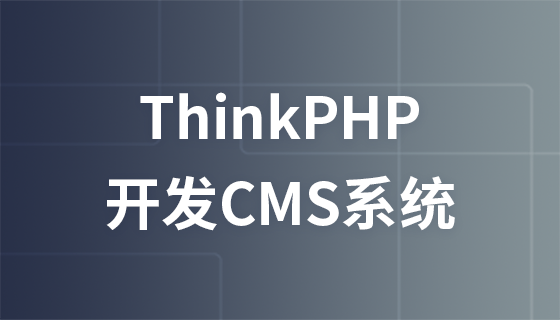
Course Advanced 30592
Course Introduction:"ThinkPHP project development CMS content management system video tutorial" CMS is the abbreviation of "Content Management System", which means "content management system". Content management system is the new favorite in enterprise information construction and e-government, and it is also a relatively new market.
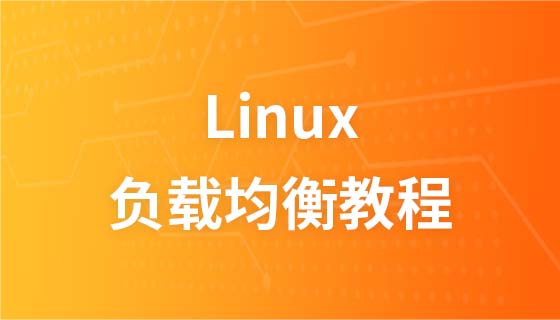
Course Intermediate 11360
Course Introduction:"Self-study IT Network Linux Load Balancing Video Tutorial" mainly implements Linux load balancing by performing script operations on web, lvs and Linux under nagin.
@admin Can you apply to become the administrator of the site?
@admin Can you apply to become the administrator of the site?
2017-10-15 15:07:51 0 1 1293
ios - Memory management: CFStringRef manual release problem
2017-06-10 09:48:13 0 1 849
@admin Can you apply to become a site administrator?
2017-10-19 16:39:32 0 1 1396
php - Novice purchasing, selling and inventory management design, please guide~
2017-06-05 11:07:08 0 1 693
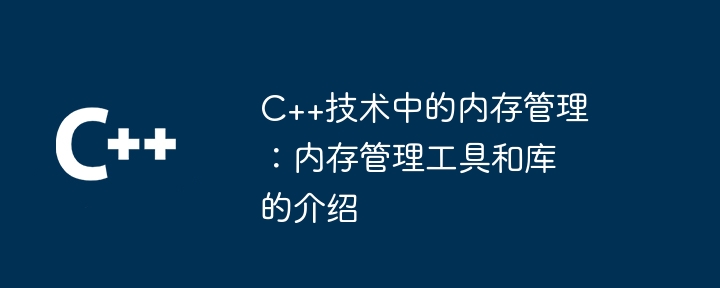
Course Introduction:C++ Memory Management: Memory Management Tools: Debugger is used to identify memory errors; Memory Analysis Tools provide memory usage insights. Memory management library: Smart pointers automatically manage memory allocation and release, such as C++11's unique_ptr and shared_ptr; the Boost library provides richer smart pointers; the memory_resource library is used for advanced memory management policy control.
2024-05-08 comment 0 842

Course Introduction:The memory management of Go language is different from traditional languages (such as C++, Java): Traditional languages: manual memory management is used, and programmers are responsible for allocating and releasing memory blocks. Go language: uses garbage collection (GC) to automatically manage memory, and programmers do not need to manage it manually. This difference leads to the following differences: Manual management vs. automatic management: The GC of the Go language makes memory management simpler and more reliable. Memory overhead: GC will consume some memory, but traditional languages do not have this overhead. Latency: The GC runs in the background and can cause a brief delay when the program needs to free memory, while manual memory management in traditional languages does not have this delay.
2024-04-11 comment 0 897
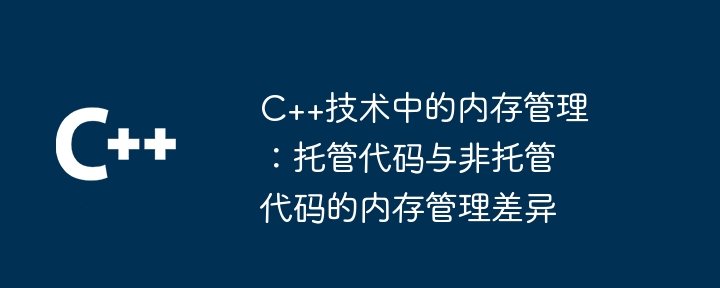
Course Introduction:Differences in memory management between managed and unmanaged code in C++: managed code is managed by the CLR, while unmanaged code is managed by the operating system. Memory allocation and release of managed code is automatically performed by the CLR, while unmanaged code needs to be managed manually. Managed code uses garbage collection, and unmanaged code needs to be wary of memory leaks and segfaults. Memory management for managed code is simple and safe, while unmanaged code is complex and error-prone.
2024-05-08 comment 0 643

Course Introduction:Detailed explanation of Go language memory management Go language, as a modern programming language, comes with a garbage collector, which eliminates the need for developers to manually manage memory and greatly simplifies the complexity of memory management. This article will introduce the memory management mechanism of Go language in detail and illustrate it through specific code examples. Memory management principle The memory management of Go language mainly relies on the garbage collector for automatic memory recycling. The garbage collector (GarbageCollector) regularly checks memory blocks that are no longer used in the program and recycles them.
2024-03-28 comment 0 733
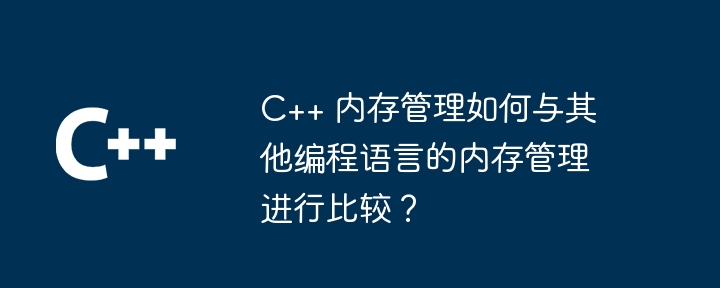
Course Introduction:Introduction to C++ Memory Management Compared to Other Programming Languages Memory management is a key concept in programming and is responsible for allocating and releasing memory space to store program data. In different programming languages, memory management methods are different, affecting the performance, maintainability and reliability of the program. This article will compare C++ memory management with the memory management methods of several other popular programming languages, showing their advantages and disadvantages. C++ Memory Management C++ uses explicit memory management, which means that the programmer is responsible for manually allocating and freeing memory. Use the new operator to apply for memory and the delete operator to release memory. //Allocate memory space for 10 integers int*numbers=newint[10]
2024-06-02 comment 0 679